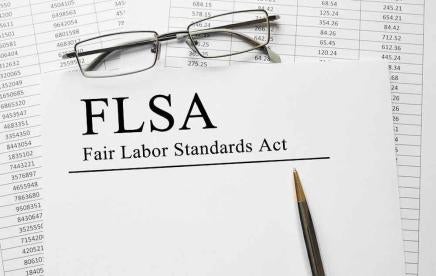This GT Report Summarizes Recent Class-Action
Decisions From Across the United States
Highlights from this issue include:
-
Supreme Court holds that serving a product market in the forum state is sufficient for specific personal jurisdiction in product liability lawsuits even when the product was not designed, manufactured or sold in that market.
-
First Circuit looks to recent Massachusetts decision in upholding order compelling individual arbitration and dismissing putative class action based on an online “clickwrap” agreement.
-
Second Circuit holds that a district court can sua sponte decertify a class after class certification, even absent a significant intervening event.
-
Third Circuit finds mootness of individual plaintiff’s claim renders class claims moot.
-
Fourth Circuit rejects predominance arguments and affirms certification of class asserting breach of contract and unconscionable inducement claims.
-
Fifth Circuit rejects conditional certification process in FLSA collective actions, articulating a new standard requiring district courts to make final certification decisions before allowing cases to proceed.
-
Fifth Circuit rules that the Daubert standard applies to expert opinions at the class certification stage.
-
Sixth Circuit holds that non-expert evidence need not be admissible at the class certification stage.
-
Seventh Circuit reverses class certification where the concept of employment based “ambient harassment” is insufficient to satisfy Rule 23 requirements given the class definition.
-
Arkansas Supreme Court affirms class certification where public records and objective criteria aid in ascertaining the class.
-
Ninth Circuit remands price fixing class action for consideration of evidence that more than a “de minimis” portion of class members was not injured.
-
District court in the D.C. Circuit rules that CAFA jurisdiction is improper unless the complaint itself invokes the class action rule or mechanism.
U.S. Supreme Court | First Circuit | Second Circuit | Third Circuit | Fourth Circuit | Fifth Circuit | Sixth Circuit | Seventh Circuit | Eighth Circuit (Arkansas Supreme Court) | Ninth Circuit | Eleventh Circuit | D. C. Circuit
Fourth Circuit
Alig v. Quicken Loans, Inc., 990 F.3d 782 (4th Cir. 2021)
Fourth Circuit rejects predominance arguments and affirms certification of class.
The Fourth Circuit affirmed the district court’s grant of class certification in this action in which plaintiffs alleged that pressure tactics used by mortgagors to influence home appraisers to raise appraisal values constituted a breach of contract and unconscionable inducement under the West Virginia Consumer Credit and Protection Act.
Defendants argued that the district court erred in granting class certification due to individualized issues on the questions of standing, the statute-of-limitations defense, the unconscionable-inducement analysis, various breach-of-contract issues, and the calculation of damages. The Fourth Circuit rejected each of these arguments.
The panel rejected the argument that the plaintiffs lacked standing because they received loans after obtaining the challenged appraisals, reasoning that, if a plaintiff is harmed, even by a small amount, they have standing even if the financial harm may be outweighed by the benefit enjoyed. On the statute of limitations defense, the panel found that the court could perform the “ministerial exercise” of determining which plaintiffs fell inside and outside the limitations period, which was based on objective criteria. On unconscionable inducement, the panel disagreed that individualized issues of state of mind defeated class certification because “actual inducement” was not an element of the statutory claim. On the breach of contract claim, the court ruled that any individual issues regarding plaintiffs’ failure to perform or lack of damages could easily be dealt with by the district court after certification of the class. Finally, the panel found that statutory damages could be assessed class-wide because the issue did not involve an analysis of each class member’s level of harm.
Zander v. Orange County, 851 S.E.2d 883 (N.C. 2020)
North Carolina Supreme Court rejects argument that class certification was improper due to application of statute of repose.
Plaintiffs sought to recover impact fees assessed by public-entity defendants under a now-repealed statute that had been enacted to allow certain counties and municipalities to defray the costs for constructing public schools, among other public services. The trial court certified two classes, and defendants appealed.
Defendants argued that the district court erred in granting class certification because all of the class members’ claims fell outside of the applicable statute of repose, and therefore, individual issues predominated. The North Carolina Supreme Court rejected this argument. The Supreme Court reviewed the background of the statute as well as the allegations in the pleadings and found that all plaintiffs alleged that they had been damaged within the statute of repose. The Court did not assess any evidence on this point. On the basis of the pleadings alone, the Court found that the statute-of-repose defense did not raise any individual issues and, on that basis, affirmed certification.
Fifth Circuit
Swales v. KLLM Transport Services, LLC, 985 F.3d 430 (5th Cir. 2021)
Fifth Circuit rejects Lusardi conditional certification process in collective actions under the Fair Labor Standards Act and requires district courts to make final certification decisions before allowing cases to proceed.
In a minimum-wage Fair Labor Standards Act (“FLSA”) collective action, truck drivers sued KLLM Transport Services, LLC, an Indiana-based transportation company, claiming they had been misclassified as independent contractors and demanding that they be paid the minimum wage. The plaintiffs moved for “conditional certification,” which would have led to notice being sent to employees, who could then become parties by filing their written consent with the court. Applying the two-step method outlined in Lusardi v. Xerox Corporation, 118 F.R.D. 351 (D.N.J. 1987), the Southern District of Mississippi granted the plaintiffs’ certification request. The district court certified its decision for appeal, and KLLM accepted that invitation.
In a unanimous panel opinion, the Fifth Circuit vacated the district court’s certification ruling. The court addressed the question of “[h]ow rigorously, and how promptly, should a district court probe whether potential members are ‘similarly situated’ and thus entitled to court-approved notice of a pending collective action?” Perceiving a need for clarity, the court explained that the lack of a defined standard left district judges “applying ad hoc tests of assorted rigor in assessing whether potential members are ‘similarly situated’” under the FLSA. The court rejected approaches adopted by other courts and outlined its own standard.
“Embrac[ing] interpretative first principles,” the court began with the FLSA’s text, which does not define what “similarly situated” means under the statute, and then considered the Supreme Court’s warning that a district court should not “signal approval of the merits or otherwise stir up litigation” at the collective-action-
Prantil v. Arkema Inc., 986 F.3d 570 (5th Cir. 2021)
Fifth Circuit rules that the Daubert standard applies at class certification stage and vacates class certification in a chemical explosion case brought by property owners when issues of causation, injury, and damages would be highly individualized.
Property owners and residents in southeastern Texas sued Arkema, Inc., the owner of a chemical facility where nine refrigerated trailers containing combustible materials burned in an explosion in the wake of Hurricane Harvey, claiming property damage seeking medical surveillance for personal injury in the federal court for the Southern District of Texas. The plaintiffs asserted claims under the Resource Conservation and Recovery Act, the Comprehensive Environmental Response, Compensation, and Liability Act, and various common law torts. The plaintiffs moved to certify both a damages class under Rule 23(b)(3) and injunctive-relief class under Rule 23(b)(2). The district court certified the classes. The defendants sought, and the court of appeals granted, leave to appeal the district court’s certification ruling.
The Fifth Circuit began its analysis by joining the Third, Seventh, and Eleventh Circuits in holding that expert opinions on class certification must be admissible under the Daubert standard. Recognizing that “certification changes the risks of litigation often in dramatic fashion,” the court of appeals clarified that “the Daubert hurdle must be cleared when scientific evidence is relevant to the decision to certify.” Here, the district court had expressed “hesitation to apply Daubert’s reliability standard with full force,” but emphasized that “an assessment of the reliability of plaintiffs’ scientific evidence for certification cannot be deferred.”
The court of appeals next considered the various Rule 23 factors and concluded that the district court’s analysis was not sufficiently exhaustive. Beginning with predominance under Rule 23(b)(3), the court of appeals determined that the district court erred because it “did not discuss the considerations affecting the administration of trial,” and it did not adequately address the defendant’s arguments that individualized issues of causation, injury, and damages would overwhelm common questions. Even though plaintiffs argued there was only one named defendant and one “course of conduct,” the court of appeals ruled that the district court should have engaged in a “discussion of how proof of Arkema’s conduct will affect trial.” The Fifth Circuit explained that “the relative balance of concededly common claim elements to contested elements of causation and injury warrants closer attention.”
The court of appeals also took issue with the district court’s certification of an injunctive class under Rule 23(b)(2). In seeking to certify that class, the plaintiffs sought injunctive relief in the form of medical monitoring and property remediation. The district court determined that the medical monitoring injunction would address the plaintiffs’ common injury. As to property remediation, the district court accepted that an injunction would be appropriate because individual clean-up efforts would not work. The court of appeals, however, concluded that the district court had failed to fully analyze these arguments. On medical monitoring, the district court failed to “discuss the range or types of medical monitoring the injunction would implement.” On property remediation, the district court “made no specific findings as to what the property remediation program would entail.” The court of appeals explained that “[t]hese discussions of the injunctions in their broad strokes do not satisfy the requirement that injunctive relief be reasonably specific.” The court emphasized that “more is needed than a common failure by the defendant and the prospect that all class members could realize some benefit if the defendant is compelled to act or desist.” While an injunctive-relief class could be capable of certification, the district court must address the opposing party’s arguments and “evaluat[e] the particulars of each injunction,” and “arrive at a nuanced assessment of whether Plaintiffs’ claims for relief can be effectively addressed in a class action.” With that, the Fifth Circuit vacated the district court’s certification order and remanded the case for further proceedings.
Sixth Circuit
Lyngaas v. Curaden AG, No. 20-1199, 2021 U.S. App. LEXIS 8601 (6th Cir. Mar. 24, 2021)
Sixth Circuit holds that non-expert evidence need not be admissible at the class certification stage.
A dentist in Michigan (Lyngaas) filed a class action against a toothbrush manufacturer (Curaden AG) for two unsolicited faxes he received from the defendant’s U.S. subsidiary (Curaden USA), which he claimed violated the Telephone Consumer Protection Act (“TCPA”). The district court in the Eastern District of Michigan held a bench trial and found that the unsolicited faxes violated the TCPA, but that Curaden AG was not a “sender” under the statute. The court also ruled that Lyngaas’s fact and expert evidence on the total number of faxes was inadmissible because it was unauthenticated. So the court created a claims administration process for class members to verify their receipt of unsolicited faxes.
Both parties appealed the district court’s rulings, and the Sixth Circuit affirmed 2 to 1. On the issue of whether Curaden AG was a “sender” under the TCPA, the court of appeals agreed with the district court that, although Curaden USA’s unsolicited faxes “advertised and promoted” Curaden AG’s products, Curaden AG did not have “knowledge of or involvement in the fax advertisements” and thus did not “cause” the faxes to be sent. The fact that Curaden AG entered into a distribution agreement with Curaden USA to “use its best endeavours to promote the sale of the Products throughout the Territory” was insufficient. (The Sixth Circuit also affirmed the district court’s conclusion that, for personal jurisdiction purposes, Curaden AG was not Curaden USA’s “alter ego,” though it did find that the court had jurisdiction over Curaden AG on other grounds.)
The Sixth Circuit also held that class certification need not be based on admissible evidence. The court explained that it “has never required a district court to decide conclusively at the class-certification stage what evidence will ultimately be admissible at trial. Nor does any binding precedent impose such a requirement.” The court first cited language from two different Supreme Court cases—General Telephone Company of the Southwest v. Falcon, 457 U.S. 147 (1982), and Comcast Corp. v. Behrend, 569 U.S. 27 (2013)—recognizing that “a party seeking to maintain a class action must satisfy through evidentiary proof at least one of the provisions of Rule 23(b).” But, following the lead of the Eighth and Ninth Circuits, the Sixth Circuit held that the “evidentiary proof” required “need not amount to admissible evidence, at least with respect to nonexpert evidence.” The court reasoned that class certification is “inherently tentative,” and that applying an admissibility standard to class certification evidence “makes little common sense.” Assessing the district court’s decision below, the court of appeals explained that “the district court here undertook the rigorous analysis required of it and correctly found sufficient evidence for class certification.” “Requiring the court to rely on formalistic evidentiary opinions at this stage could have been inappropriate, particularly given Lyngaas’s assurance that he would be able to authenticate the logs at trial.” Given that, the court ruled that the claims administration process was appropriate.
Finally, the Sixth Circuit rejected Curaden AG’s argument that the Supreme Court’s 2017 decision in Bristol-Meyers Squibb Company v. Superior Court of California, San Francisco County, 137 S. Ct. 1773 (2017), applied to federal class actions. The court refused to interpret Bristol-Meyers as requiring a federal court in a class action to have personal jurisdiction over the defendant as to each class member, which is a requirement for all plaintiffs in a state court mass action. After discussing Bristol-Meyers and other decisions, the court of appeals offered two reasons for its decision. “First,” the court explained, “a class action is formally one suit in which, as a practical matter, a defendant litigates against only the class representative.” And “[s]econd, and relatedly,” the court reasoned, “absent class members are not considered parties, as a class representative is, for certain jurisdictional purposes.” The differences between a federal class action and a coordinated state court mass action warrant different approaches.
Primus Grp. v. Smith & Wesson Corp., No. 19-3992 (6th Cir. Feb. 8, 2021)
Sixth Circuit rejects proposed class action to hold gun manufacturers liable for mass shootings in public places.
The Sixth Circuit affirmed an Ohio federal judge’s decision to dismiss Primus Group’s proposed class action against gun manufacturers based on Primus Group’s failure to establish proper standing.
In August 2009, Primus Group—a Columbus, Ohio-based entertainment venue—filed a class action suit against eight firearm manufacturers to enjoin them from selling or distributing assault weapons to civilians. Primus alleged that the arms manufacturers violated the Racketeer Influenced and Corrupt Organizations Act (“RICO”) and “intentionally misrepresented the purpose of these weapons.” After the gun manufacturers sought dismissal by asserting Primus Group’s “fail[ure] to allege an actual case or controversy conferring Article III standing,” Primus Group amended its petition to include public-nuisance, negligent-design, failure-to-warn, RICO, and intentional-misrepresentation claims. Primus Group supported its position to pursue the class action suit by complaining that the “persistent killing and wounding of countless persons” endangers the health, welfare, safety and lives of all people living in the United States, and that “‘gun violence’ poses an ‘imminent’ and inevitable’ threat of irreparable harm to American society[.]”
The issue before the Sixth Circuit was whether Primus Group had pled an injury in fact. Affirming the district court, the panel ruled that Primus had not. The panel reasoned that Primus Group’s claimed injury “is typical of any entity that operates where people assemble to attend, inter alia, entertainment or music venues, restaurants, bars, stadiums and shopping centers” that “now lose market share due to public hysteria or the real threat of mass shootings[.]” This did not meet the threshold to establish standing. The complaint supplied no facts to demonstrate that Primus Group was “among th[ose] injured by mass shooting; that gun violence affects Primus Group “in a personal and individual way”; or that Primus Group had “a direct stake in the outcome” of the suit.
The Sixth Circuit rejected Primus Group’s argument that “anxiety arising from the omnipresent threat of mass shootings by civilians armed with assault weapons is sufficient to state an injury in fact.” The panel pointed to Primus Group’s assertion that it “br[ings] this suit on behalf of all citizens, person, and inhabitants of the United States of America” as an indication that Primus Group did not conceive of gun violence as a personal injury. The panel ultimately decided that “particularization is necessary to establish injury in fact; and by failing to allege a particular harm, Primus has failed to meet its burden at the pleading stage to demonstrate injury in fact.”
Editors: Robert J. Herrington & Stephen L. Saxl & Co-authors: Aaron Van Nostrand, Kara E. Angeletti, Andrea N. Chidyllo, Gregory Franklin & Brian D. Straw








 i
i


